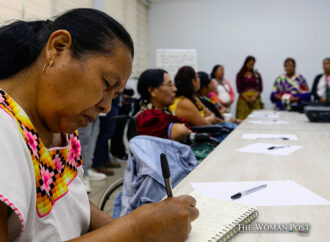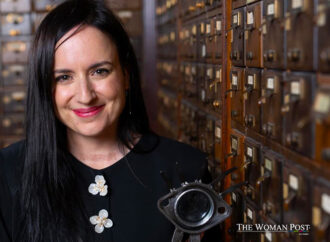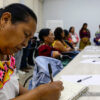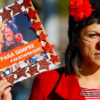The constant struggle of women to join political and economic life has been intense in many aspects because beliefs, personality traits, attitudes, behaviors, and even values that are different in men than in women are required.
A recent study called “Women and Economic Growth” conducted by the International Monetary Fund (IMF) and published in the Journal of Finance & Development revealed that women earn 63% less than men. However, they devote three times as many hours to work that is not well paid. Camilla Lund Andersen, Editor-in-Chief of Finance & Development magazine, believes it’s easy for a woman to fall into despair but believes more minor changes can be surprising and powerful. In addition, it suggests that women should fight for their rights, and yet they may at some point face discrimination or exclusion not only in health but also in education and the productive sector.
Christine Lagarde, Managing Director of the International Monetary Fund (IMF), believes that women must be empowered in all economies and populations. In addition, it assumes that unequal or discriminatory treatment can marginalize the female gender and generate difficulties and limitations in their participation. However, with the work and effort of women and girls, equal opportunities can be guaranteed.
An article in the Finance & Development magazine by Era Dabla-Norris, Division Chief of the Asian I Division in the IMF’s Asia Pacific Department and mission chief for Vietnam, and Kalpana Kochhar, Director of the Human Resources Department (HRD) at the International Monetary Fund, both discuss the economic benefits of increasing women’s participation in the workforce. Nevertheless, these gains could fade if women are overvalued in jobs at a high risk of automation. That is why it is essential to ensure equal support between men and women and promote the creation of flexible employment for women.
However, each woman seeks to build an inclusive economy with different points of view and thoughts, as is the case of Katrín Jakobsdóttir, Prime Minister of Iceland, who analyzes the importance of gender when reflecting on the economy. She believes that campaigns in Iceland for women’s equality have called for some social measures, including legislative changes in favor of sexual and reproductive freedom. As well as, it has required economic policies that are expensive but can be modified in the application.
Women Are Protagonists in the Activation of the Economy
Another article published in Finance & Development magazine by Ashlin Mathew, Editor of the National Herald newspaper in New Delhi, reveals that women struggle to break down obstacles in setting up businesses in India. However, women’s low participation in the economy may explain why barriers continue. Ashlin Mathew believes there is a lack of a mechanism to create an effective legal structure to support women’s empowerment.
It even assumes that women entrepreneurs also suffer discrimination, inequalities, and exclusion in India’s educated elite of cities. The worst thing is that it has become difficult to close all the gaps that have been imposed. Rakhi Kumar, Senior Executive Director and Head of ESG Investments, suggests investing in gender diversity in investment sectors and at all levels. She believes that our goal should be to ensure independent and effective leadership, which implies generating skills in women and a diversity of positions.
Also read: MIT BITCOIN EXPO 2022 EVENT: WOMEN IN THE CRYPTO WORLD
The Economy From Another Female Approach
Another article published in the journal Finance & Development by Sarah Hendriks, Director of Gender Equality at the Bill & Melinda Gates Foundation, reveals that poverty is not the only factor for a woman not to emerge economically. There is a combination of factors such as lack of financial assets, lack of access to property, and lack of female voices in communities. All these aspects have a different effect on men, but it strips women of the great opportunities they require in their lives.
In this sense, women’s financial inclusion is one of the powerful instruments to promote equality and equity in the reality of women. Sarah Hendriks suggests that when a woman has a bank account to keep her income, it gives her the freedom to have absolute control over her life.
Forcefully, the economy of women has required a digital economic identity in recent years; that is, it has become more complicated. However, it provides better benefits in different countries where inequality and discrimination abound.
























Leave a Comment
Your email address will not be published. Required fields are marked with *